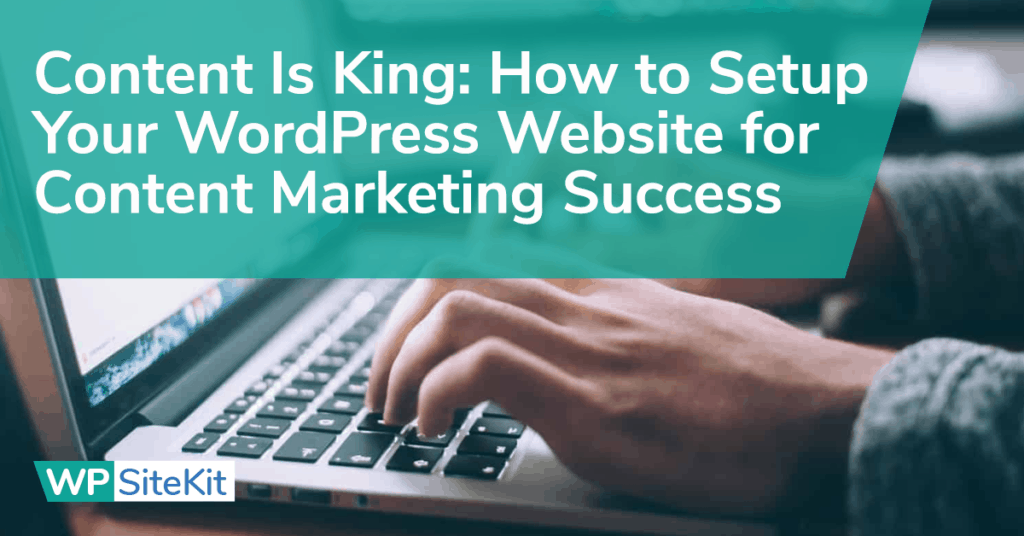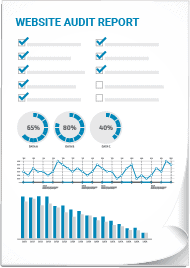So, you’ve finally taken the plunge and decided that it’s time to get a WordPress site up and going for your business.
Now, what do you do with it?
You know that content marketing is used by more than half of the small businesses out there but you’re not sure where to start.
If you’ve got the site but not the know-how you’re in the right place. Read on and we’ll give you the hot content marketing tips you need to ensure that your business succeeds in the digital world.
Content is Still King
Content marketing is one of the best approaches to the world of digital marketing for both amateurs and experts.
Content marketing assists with all of the key elements of a marketing campaign: conversion rates, brand awareness, and reputation can all be bolstered by using the right content.
The issue for most people is creating content that both users and Google will love.
Thankfully, that issue is often becoming a thing of the past as Google’s advanced algorithms have become much better at figuring out what the intent of a search query is.
Basically: your keyword research needs to be on point and you need to hit all of the big stuff Google looks for.
Keyword research is dependent on the niche you’re in and how you’re offering your product. That is to say: it’s a personal matter rather than one we can just point at for you. If you’re completely new just keep track of the Google Analytics data for your posts.
To really succeed, consider the following about each post you make:
- Is the information deep?
- Does this offer the person who clicks real value?
- Is the post structured for on-page SEO?
- Does this post contain pictures or diagrams?
- Is this part of a comprehensive content marketing strategy or just a keyword targetted article?
If your answer to the first four is “yes” and your new post is part of an entire strategy rather than a standalone attempt at grabbing traffic you’re in good hands.
Responsive Theme Design
More people than ever before are using their mobile devices for searching. Even when home, you’ll find that many people will grab a phone or tablet instead of a laptop for quick answers.
Your web page needs to display equally well across the wide run of devices that are available.
A responsive theme will resize your page, allow for changes in the column and row orders, and generally make for a good experience across every device that stumbles across the page.
A non-responsive one… doesn’t. And that can mean big losses, especially for local businesses, since mobile users are more likely to convert.
Do not ignore this crucial factor.
Using the Right Plugins
Different webmasters use plugins differently.
There are a ton of plugins out there that make things like checking readability or the SEO potential of an article a snap.
Avoid using too many plugins, however, particularly those that are heavy on the user end. Increased loading times on your page leads to a higher bounce rate which will hurt search engine page ranking in the long run.
Instead, focus on those that will assist with SEO and data analysis. Other plugins have their place but a well-designed page can be had without the need for any aesthetic plugins.
Using too many flashy plug-ins is a major mistake many amateur web designers make. If you can keep the same user experience without a plugin… do so.
That leaves more room for programs that supply your side with information and helps to optimize loading speeds.
The Nuts and Bolts of Technical SEO
Technical SEO is the third, often ignored part of the search engine optimization puzzle. On-page gets the grunt work, off-page gets the glory, but technical SEO is required in any niche which is highly competitive.
It’s also remarkably simple to make sure you’re getting it right.
The main factors of concern to you are the following:
- Mobile friendliness
- Page load speed
- Internal site structure
As long as you picked a reputable server and a responsive theme, you’re in good hands with the first two.
The last one can be make-or-break if you’re vying neck-and-neck with the competition.
Your pages should have a comprehensive structure. This helps search engine crawlers determine the relevance of your page to the query and shows that your site as a whole is what the person searching is looking for.
For most people, a pillar-and-cluster structure is the easiest to implement. It’s also remarkably easy to tie into your overall content strategy.
The general idea is to write an extensive article on one portion of your niche which forms the pillar. You can then create the cluster around the article by going more in-depth about individual points contained within the article in other posts.
Analyzing Your Data for Potential Improvements
The key to a content marketing strategy is to remain agile through the process.
That means looking at the data to determine which of your pages are performing well and then using the same techniques to see if you can do better.
Split testing, analytic metrics, and organic backlinks are all important.
The key is to find the tone and methods which work best for you and your target audience. Your content is only as good as the results, no matter how much you love it personally.
Enjoy Our Content Marketing Tips?
Getting into the digital realm of marketing can be daunting. There’s a lot to learn and even the best content marketing tips will lead you nowhere if you don’t take action.
Fortunately, there are a lot of easy ways out there to start a website and get your hands dirty. That’s the best way to learn.
If you’re looking to get a site started for content marketing, you’re in the right place. Why not take a look at our affordable plans?




